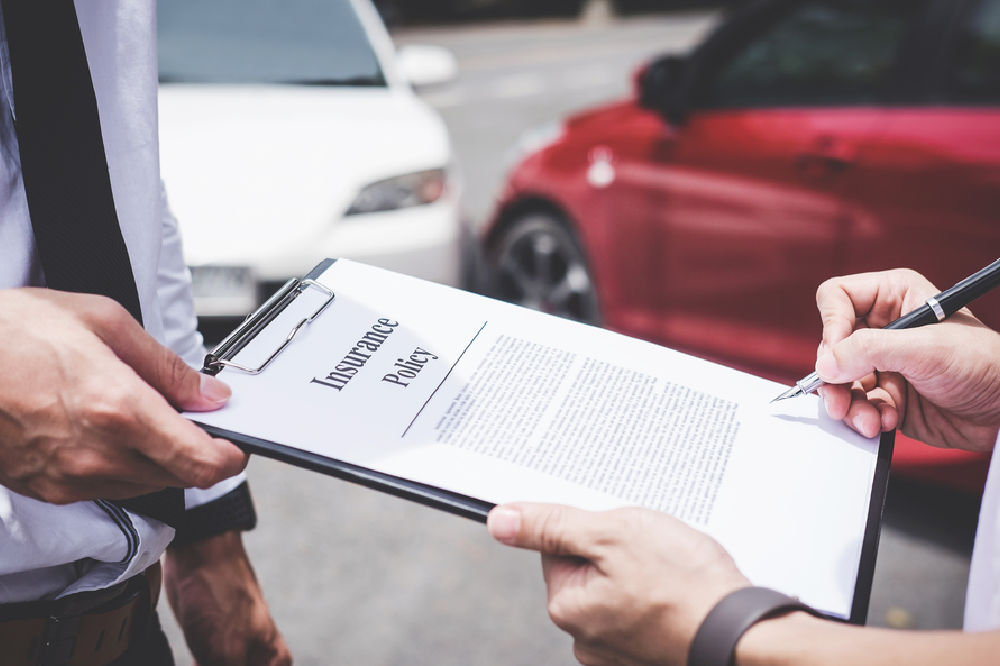When it comes down to it, insurance adjusters work for the insurance company, not the victim. This is important to remember after a car accident because anything you say to an adjuster can be used against you later to keep you from getting a substantial insurance claim. While the biggest priority is safety, you should also be aware of a few things you should never say to an insurance adjuster.
In this blog, we discuss a few of the most important things you should never say to an insurance adjuster after a car accident.
1. Admitting Fault
The absolute worst thing you can say to an adjuster after an accident is that it was your fault. However, admitting fault can sound like a few things and doesn’t need to be as specific as “This accident was caused by me.” Even admitting partial fault can be extremely detrimental to your insurance claim. Avoid phrases like:
- “I’m sorry”
- “I didn’t see them there”
- “I was looking at my phone”
Whoever caused the car accident will be held responsible for damages, but in most cases, the driver will have liability insurance to cover any costs of the accident.
Keep in mind, insurance companies make most of their profits through premiums and work to minimize any payouts for a car accident, settlement, or claim. This means that an insurance adjuster will be looking for anything they can to keep you from getting the maximum settlement from a claim.
The fact is in most cases, no party involved in the accident will know exactly what happened. Many times, both parties were just driving along the road before they abruptly got into an accident. This is why it’s important to minimize what you say to an adjuster, and certainly refrain from admitting any fault.
2. Downplaying Injuries
After a car accident, a victim may initially feel unharmed but have latent conditions that will present after some time. Some conditions that may not appear initially are:
- Whiplash
- Head injuries
- Traumatic brain injuries (TBIs)
- Chronic pain
- Back injuries
An insurance adjuster will use anything they can to keep you from getting the maximum payout. So, if you say “I’m fine” or “I don’t need to see a doctor” after a crash but end up suffering from a latent condition caused by the crash, an adjuster will use that to prove you are playing up your injuries for money.
Victims deserve compensation for their pain and suffering, so avoid downplaying your injuries to ensure you receive the maximum payout.
3. Describing Your Injuries
While you should refrain from downplaying any injuries you may have suffered, you should also avoid describing to an adjuster any injuries you have altogether. An insurance adjuster’s primary goal is to minimize the payout that the insurance company needs to provide, so this includes looking for any preexisting conditions a victim may have prior to the accident. It’s not uncommon for an adjuster to ask for a victim’s private medical records as a way to verify injuries. What they’re really doing is searching for any preexisting conditions the victim may have.
Let’s say for example you have a history of back pain, and several vertebrae were broken in the car accident. If an adjuster finds proof that you had back problems prior to the accident, they will claim that your injury was exacerbated by your preexisting condition and minimize their payout. This is why it’s extremely important to refrain from describing any of your injuries to an adjuster.
Contact an Indianapolis Car Accident Lawyer
There are many things that factor into the aftermath of a car accident, so don’t hesitate to find out how a car accident lawyer can help with your case. Ensure you have the knowledge and guidance you need to navigate speaking with an insurance adjuster. Our main goal is to effectively handle the legal process for you so you can focus on healing from your injuries.
For expert legal guidance in Indiana, contact Crossen Law Firm. Call our office at 317-401-8626, or you can contact us online here.

 317-401-8626
317-401-8626 
.jpg)